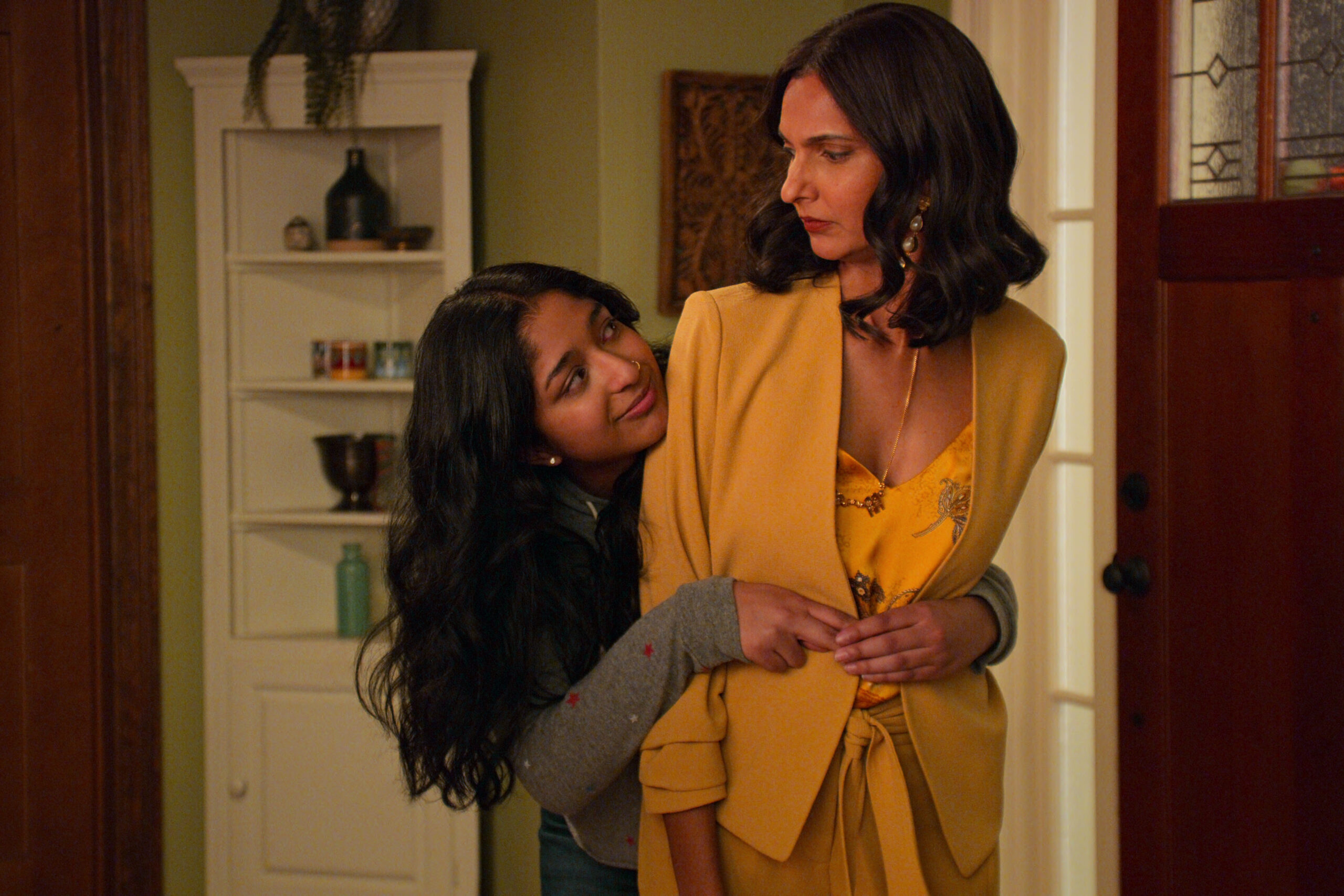If you graphed my relationship with my mother on a timeline, there would be much more points depicting our tumult than points depicting our joy. A lot of that is because, despite the intensity of our love for one another, we just never… clicked. The chasm that divides us seems unending. And one of our largest pain points was always her attempt to raise me as she was raised.
As a Colombian immigrant, my mother wanted to instill me with a thorough sense of discipline and order. She needed to be sure I understood just how little space I had to fail in this life. And though these teachings were my ma’s way of protecting me, I always resented her for it.
It’s a relationship that many of my first-generation Latine-American friends empathize with, though mine always felt particularly fraught in ways I never saw represented anywhere. Until I stumbled on Mindy Kaling’s Never Have I Ever.

During the COVID-19 lockdown, I had to return from college to living with my mom because my campus shut down entirely. Though I struggled immensely at school, I always preferred my college campus to my childhood home because I finally had real space. Space to breathe, space to heal, space to be myself. While at school, I could finally leave a t-shirt I wasn’t going to wear out on my bed without my mother’s strict sense of discipline choking me.
And that freedom was deeply precious to me, because it allowed me to improve our relationship. That space from her allowed me to really appreciate the sacrifices she made for me. It surprised me how much I missed her.
But less than a month into lockdown, I was already feeling freedom withdrawals. My relationship with my mother morphed back into the constant battle over boundaries that I had escaped once I went away for school.
We fell back into our usual patterns of arguments that ended in me sitting in my bedroom in the dark, sobbing open-mouthed into my pillow as Paramore played in the background. I would try and try to communicate with her and never really feel heard.
But then, I watched the first season of Never Have I Ever. Watching Devi Vishwakumar, the show’s protagonist, I see flashes of my teenage self on screen. Devi is a bundle of emotions that constantly contradicts in the same way mine once did. Her nerdy swagger, intense rebelliousness, and unambiguously American ambition feel so familiar to me.

But it is her relationship with her mother, Nalini Vishwakumar, that opened my eyes to my mother’s love and finally allowed me to understand her. You see, for four seasons, Nalini has to watch as her fireball child makes mistake after mistake, despite her best attempts at protecting her. And I hate to admit this, but most of the time, Nalini is right. Her warnings against Devi’s impulses are often attempts at saving Devi from heartbreak and embarrassment. And her constant emphasis on discipline and order are attempts at providing Devi with a structure so rigid that Devi can’t fail.
While Devi and Nalini’s relationship doesn’t make me feel any less righteous about my headstrong ways (I mean, they are my mom’s fault for raising me on Colombian novelas), it does allow me to see the fears propelling my ma’s quest for a well-disciplined household. Never Have I Ever gives me a real window into understanding the pain my mother was trying to save me from.
More importantly, though, watching Devi try and fail and try again to talk to Nalini about their tensions gave me a blueprint for approaching my mother about our own. As the pair navigate fight after fight, I can see a birds-eye view of how my mother could be feeling after one of our arguments through Nalini’s perspective. And that gave me the tools I needed to talk to my mother in ways that allowed her to really hear me.
While I don’t have all the answers to making our relationship perfect, Devi and Nalini gave me the tools I needed to give my mother the kind of love I always yearned for: one filled with understanding.

